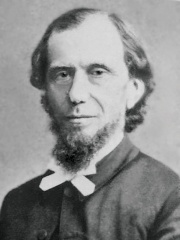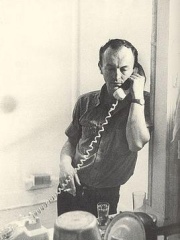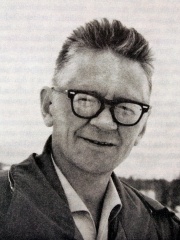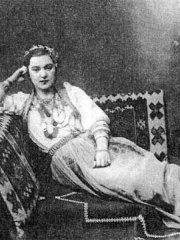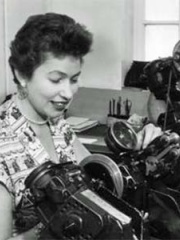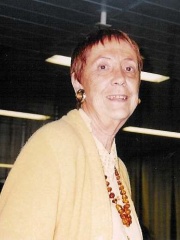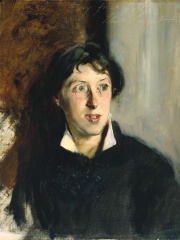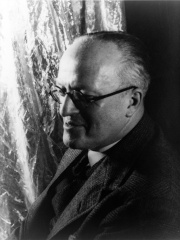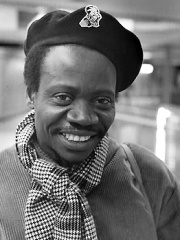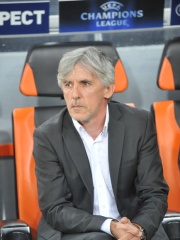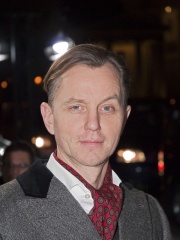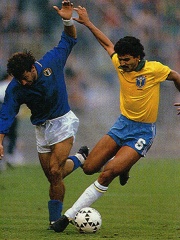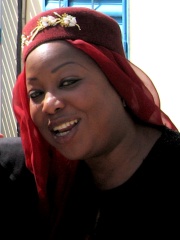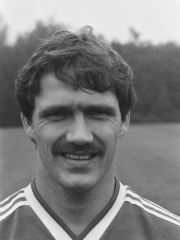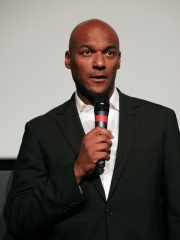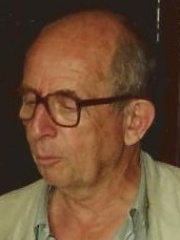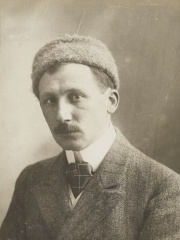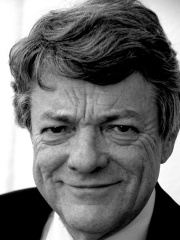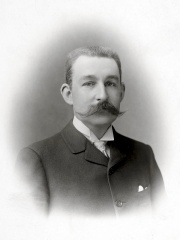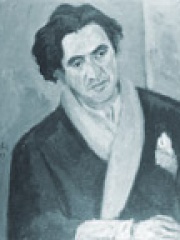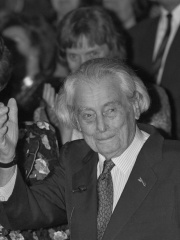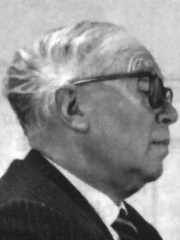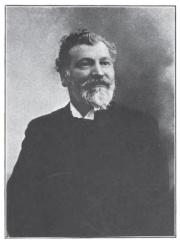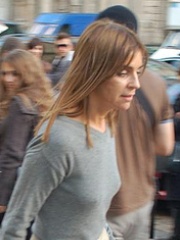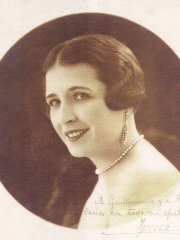Writer
Philippe Claudel
1962 - today
EN.WIKIPEDIA PAGE VIEWS (PV)
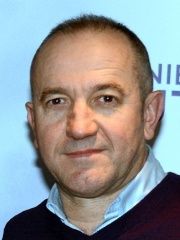
 Philippe Claudel
Philippe Claudel
His biography is available in 28 different languages on Wikipedia. Philippe Claudel is the 5,396th most popular writer (down from 4,854th in 2024), the 4,739th most popular biography from France (down from 4,401st in 2019) and the 603rd most popular French Writer.
Memorability Metrics
Page views of Philippe Claudel by language
Among Writers
Among writers, Philippe Claudel ranks 5,396 out of 7,302. Before him are Andrew Murray, Frank O'Hara, Per Olof Sundman, Umihana Čuvidina, Anne V. Coates, and Angélica Gorodischer. After him are Vernon Lee, Hugh Walpole, Jacques Dupin, Giorgi Leonidze, Sony Lab'ou Tansi, and Katherine Neville.
Most Popular Writers in Wikipedia
Go to all RankingsAndrew Murray
1828 - 1917
HPI: 54.68
Rank: 5,390
Frank O'Hara
1926 - 1966
HPI: 54.68
Rank: 5,391
Per Olof Sundman
1922 - 1992
HPI: 54.68
Rank: 5,392
Umihana Čuvidina
1794 - 1870
HPI: 54.67
Rank: 5,393
Anne V. Coates
1925 - 2018
HPI: 54.67
Rank: 5,394
Angélica Gorodischer
1928 - 2022
HPI: 54.67
Rank: 5,395
Philippe Claudel
1962 - Present
HPI: 54.67
Rank: 5,396
Vernon Lee
1856 - 1935
HPI: 54.67
Rank: 5,397
Hugh Walpole
1884 - 1941
HPI: 54.67
Rank: 5,398
Jacques Dupin
1927 - 2012
HPI: 54.67
Rank: 5,399
Giorgi Leonidze
1899 - 1966
HPI: 54.66
Rank: 5,400
Sony Lab'ou Tansi
1947 - 1995
HPI: 54.66
Rank: 5,401
Katherine Neville
1945 - Present
HPI: 54.66
Rank: 5,402
Contemporaries
Among people born in 1962, Philippe Claudel ranks 320. Before him are Johan Eliasch, Gilby Clarke, Ivan Jovanović, Max Raabe, Ricardo Rocha, and Lana Clarkson. After him are Fatma Samoura, Ivica Barbarić, Ahn Cheol-soo, Berry van Aerle, Choi Myung-gil, and Colin Salmon.
Others Born in 1962
Go to all RankingsJohan Eliasch
BUSINESSPERSON
1962 - Present
HPI: 54.78
Rank: 314
Gilby Clarke
MUSICIAN
1962 - Present
HPI: 54.75
Rank: 315
Ivan Jovanović
COACH
1962 - Present
HPI: 54.74
Rank: 316
Max Raabe
SINGER
1962 - Present
HPI: 54.71
Rank: 317
Ricardo Rocha
SOCCER PLAYER
1962 - Present
HPI: 54.70
Rank: 318
Lana Clarkson
ACTOR
1962 - 2003
HPI: 54.67
Rank: 319
Philippe Claudel
WRITER
1962 - Present
HPI: 54.67
Rank: 320
Fatma Samoura
POLITICIAN
1962 - Present
HPI: 54.62
Rank: 321
Ivica Barbarić
SOCCER PLAYER
1962 - Present
HPI: 54.62
Rank: 322
Ahn Cheol-soo
POLITICIAN
1962 - Present
HPI: 54.59
Rank: 323
Berry van Aerle
SOCCER PLAYER
1962 - Present
HPI: 54.58
Rank: 324
Choi Myung-gil
ACTOR
1962 - Present
HPI: 54.55
Rank: 325
Colin Salmon
ACTOR
1962 - Present
HPI: 54.50
Rank: 326
In France
Among people born in France, Philippe Claudel ranks 4,739 out of NaN. Before him are Jacques Baratier (1918), Laurent Koscielny (1985), Corinne Calvet (1925), Léon Delagrange (1872), Robert Boutigny (1927), and Pierre Chambon (1931). After him are Vernon Lee (1856), Pierre Gasly (1996), Jacques Dupin (1927), Jean-Louis Borloo (1951), Guillaume Grandidier (1873), and Éric Bernard (1964).
Others born in France
Go to all RankingsJacques Baratier
FILM DIRECTOR
1918 - 2009
HPI: 54.71
Rank: 4,733
Laurent Koscielny
SOCCER PLAYER
1985 - Present
HPI: 54.70
Rank: 4,734
Corinne Calvet
ACTOR
1925 - 2001
HPI: 54.70
Rank: 4,735
Léon Delagrange
SCULPTOR
1872 - 1910
HPI: 54.69
Rank: 4,736
Robert Boutigny
ATHLETE
1927 - 2022
HPI: 54.68
Rank: 4,737
Pierre Chambon
BIOLOGIST
1931 - 2018
HPI: 54.67
Rank: 4,738
Philippe Claudel
WRITER
1962 - Present
HPI: 54.67
Rank: 4,739
Vernon Lee
WRITER
1856 - 1935
HPI: 54.67
Rank: 4,740
Pierre Gasly
RACING DRIVER
1996 - Present
HPI: 54.67
Rank: 4,741
Jacques Dupin
WRITER
1927 - 2012
HPI: 54.67
Rank: 4,742
Jean-Louis Borloo
POLITICIAN
1951 - Present
HPI: 54.66
Rank: 4,743
Guillaume Grandidier
GEOGRAPHER
1873 - 1957
HPI: 54.66
Rank: 4,744
Éric Bernard
RACING DRIVER
1964 - Present
HPI: 54.65
Rank: 4,745
Among Writers In France
Among writers born in France, Philippe Claudel ranks 603. Before him are Tony Duvert (1945), Claude Mauriac (1914), Jacques Laurent (1919), Louis Guilloux (1899), Marceline Loridan-Ivens (1928), and Raymond Schwartz (1894). After him are Vernon Lee (1856), Jacques Dupin (1927), Anatole Le Braz (1859), Carine Roitfeld (1954), Jeanne Dumée (1660), and Teresa de la Parra (1889).
Tony Duvert
1945 - 2008
HPI: 54.86
Rank: 597
Claude Mauriac
1914 - 1996
HPI: 54.84
Rank: 598
Jacques Laurent
1919 - 2000
HPI: 54.79
Rank: 599
Louis Guilloux
1899 - 1980
HPI: 54.76
Rank: 600
Marceline Loridan-Ivens
1928 - 2018
HPI: 54.76
Rank: 601
Raymond Schwartz
1894 - 1973
HPI: 54.76
Rank: 602
Philippe Claudel
1962 - Present
HPI: 54.67
Rank: 603
Vernon Lee
1856 - 1935
HPI: 54.67
Rank: 604
Jacques Dupin
1927 - 2012
HPI: 54.67
Rank: 605
Anatole Le Braz
1859 - 1926
HPI: 54.57
Rank: 606
Carine Roitfeld
1954 - Present
HPI: 54.54
Rank: 607
Jeanne Dumée
1660 - 1706
HPI: 54.49
Rank: 608
Teresa de la Parra
1889 - 1936
HPI: 54.39
Rank: 609
